
Bryan Ferry is coming to Iceland next month for a couple of concerts - and yours truly is of course going to see the legendary singer! He will be playing at Harpa here in Reykjavik on May 27th and 28th. Orignally it was only supposed to be one show, but after selling out in less then 2 hours another date was added. Tickets can be bought here and these are the only shows that have been announced this year. Fans should keep an eye out for possible signing sessions, as he has expressed intrest in meeting fans here and sign items (I would love for him to sign my deluxe edition of Olympia!).

Here is Part 1 of a look back at his career, which now spans 40 years and counting!
Bryan Ferry was born on 26 September 1945. Ferry came to public prominence in the early 1970s as lead vocalist and principal songwriter with the band Roxy Music, who enjoyed a highly successful career with three number one albums and ten singles entering the top ten charts in the United Kingdom. Ferry began his solo career in 1973, while still a member of Roxy Music, which continues to the present day.
Born into a working class family (his father, Fred Ferry, was a farmer who also looked after pit ponies), Ferry attended Washington Grammar-Technical School on Spout Lane. He then studied fine art at the University of Newcastle..
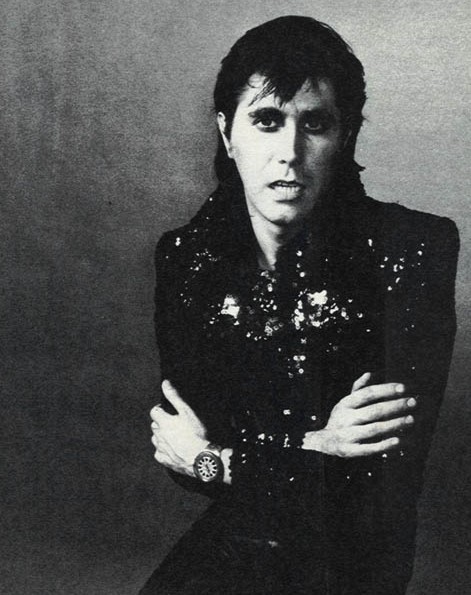
Ferry formed Roxy Music with a group of friends and acquaintances, beginning with Graham Simpson, in November 1970. The line-up expanded to include saxophonist/oboist Andy Mackay and his acquaintance Brian Eno, who owned tape recorders and played Mackay's synthesiser. Other early members included timpanist Dexter Lloyd and ex-Nice guitarist David O'List, who were replaced respectively by Paul Thompson and Phil Manzanera before the band recorded its first album.
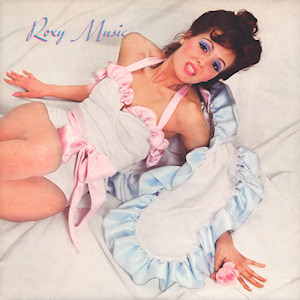
The band had signed with Island Records and the debut LP was released in June 1972 to good reviews and became a major success, reaching #10 on the UK album chart in September 1972.


To garner more attention to their album, Roxy Music decided to record and release a single. Their debut single was "Virginia Plain", which scored #4 in the British charts. The band's eclectic visual image, captured in their debut performance on the BBC's Top of the Pops, became a cornerstone for the glam trend in the UK.

The next album, For Your Pleasure was released in March 1973. It marked the beginning of the band's long, successful collaboration with producer Chris Thomas, who worked on all of the group's classic albums and singles in the 1970s. The album was promoted with the non-album single "Pyjamarama" (UK #10) but no album track was released as a single. At the time, Ferry was dating French model Amanda Lear, who was photographed with a black jaguar for the cover of For Your Pleasure (Ferry appears on the back cover as a dapper chauffeur standing in front of a limousine). The album charted at #4 in the UK.
After their second album, Brian Eno left Roxy Music, leaving Ferry its undisputed leader. Ferry started a parallel solo career in 1973, initially performing cover versions of old standards on the albums These Foolish Things (1973, UK# 5) and Another Time, Another Place (1974, UK# 4).


The albums included such singles as "A Hard Rain's Gonna Fall" (#10), "The In Crowd" (#13) and "Smoke Get's In Your Eyes" (#17).
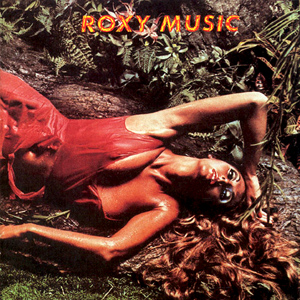
Stranded was released in late 1973, reaching number one on the UK album charts. It was the first Roxy Music album on which Ferry was not the sole songwriter. Though it was also the first without Brian Eno he nonetheless later rated it as Roxy Music's finest record. The track "Street Life" was released as a single and reached number 9 on the UK charts.
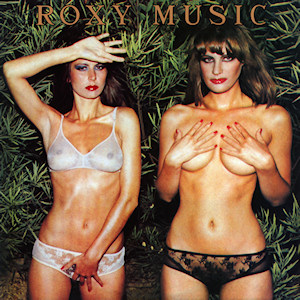
This was followed by the album Country Life, which reached #3 in the UK and received great reviews. The single "All I Want Is You" reached #12 on the UK singles chart.
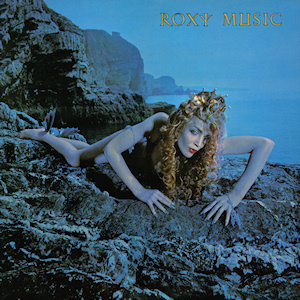
Siren, the fifth album, was released in 1975, reaching #4 in the UK. The album featured one of their biggest single, "Love Is The Drug". It peaked at #2 in the UK, and later became a big hit for Grace Jones.
After the concert tour in support of Siren, Roxy Music temporarily disbanded in 1976 though bandmembers took part in recording Ferry's subsequent solo material. The final Roxy release at the time was a live album called Viva. It charted #6 in the UK.

Meanwhile, Bryan was focusing on his solo career and in 1976 he released his third solo album, "Let's Stick Together".

Unlike Ferry’s two previous solo recordings, Let’s Stick Together was not a dedicated album project, instead being made up of material released as singles, B-sides and an EP (five of the tracks on the album were remakes of Bryan Ferry songs previously recorded with Roxy Music). With a highly-popular title track (UK#4 and a 1988 remix charting at #12), it had a generally favourable critical reception. The album itself peaked at #19 and also spawned the single "You Go To My Head" (#33).

Unlike Ferry’s two previous solo recordings, Let’s Stick Together was not a dedicated album project, instead being made up of material released as singles, B-sides and an EP (five of the tracks on the album were remakes of Bryan Ferry songs previously recorded with Roxy Music). With a highly-popular title track (UK#4 and a 1988 remix charting at #12), it had a generally favourable critical reception. The album itself peaked at #19 and also spawned the single "You Go To My Head" (#33).

The next album was the first consisting entirely of original songs. In Your Mind was released in 1977, peaking at #5. It featured the singles "This Is Tomorrow" (#9) and "Tokyo Joe" (#15) (later covered by Bananarama).

In 1978 Ferry released The Bride Stripped Bare. It charted at #19 and included the singles "What Goes On" (#67) and "Sign Of The Times" (#37).
Part 2 coming soon...


3 comments:
You know my love for Bryan Ferry and Roxy Music. I'm not a "Jealous Guy" at all that you're going to see him! Fab post, btw... Jx
Hehe - thanks! Yes, I remember some excellent posts from your blogs. You will be at the concert with me in spirits ;)
Can't wait for this
Post a Comment